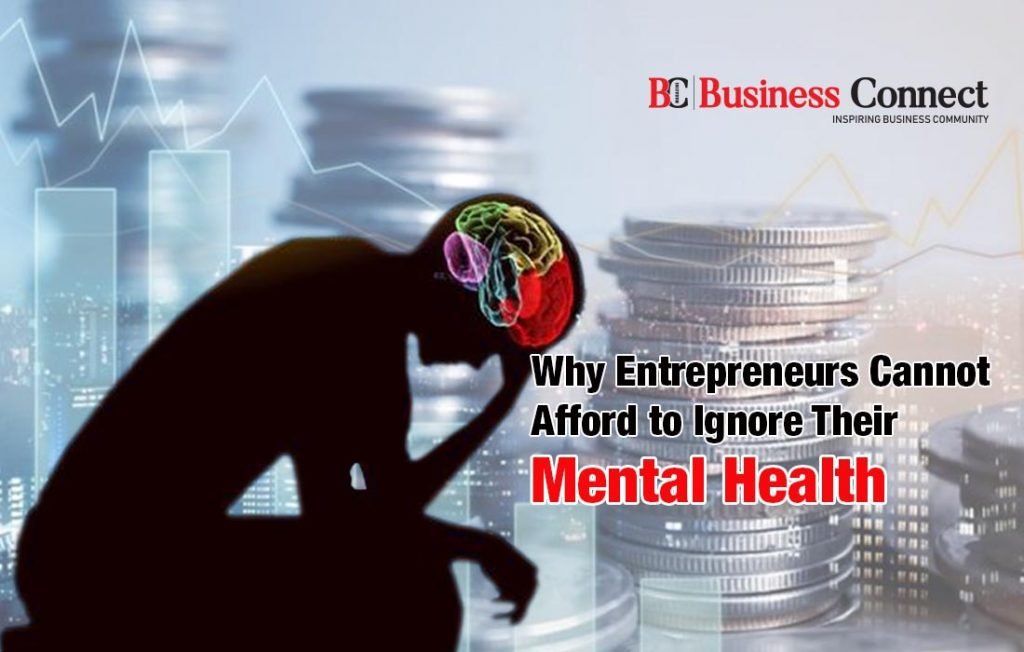Written by: Kriti Anand
Why Entrepreneurs Cannot Afford to Ignore Their Mental Health
What is entrepreneurship? What does it entail? These questions have been asked and addressed ad nauseam. There are a number of answers, all of which have in common something along the lines of a creative enterprise, a personal venture, and taking substantial risks in hopes for success.
What these answers invariably leave out is the huge responsibility that is shouldered, almost alone, when launching your own startup. We tend to publicize the bright side of things: the exceptionally successful enterprises, the riches, the glamour, the pride that comes with success. In footnotes, once in a while, we find the actual statistics: more than 70 percent of the entrepreneurship fail, 90 percent of them in their first five years.
The reason behind the staggering numbers of failures is not a lack of commitment, skill, or implementation. More often than not, it is the psychological cost a venture like entrepreneurship extorts that becomes the cause of failure. We all talk about beginner’s luck, not so much about beginner’s stress. Those who have achieved success, they too have their own stories of the toll entrepreneurship has taken on their mental health.
The unique work pressure being your own boss involves is often much greater than working under a boss. A study by Freeman et al, University of California, suggests that entrepreneurs are significantly more likely to report a lifetime history of depression (30%), ADHD (29%), substance use conditions (12%) and bipolar diagnosis (11%) than non-entrepreneurs.
The conclusions Freeman derived from his research well establishes the fact that entrepreneurship and mental health disorders go hand in hand. In fact, the very characteristics that help one become a success often push them off the edge. According to Freeman, researchers have identified a relationship between creativity and mental health conditions including psychosis, bipolarity, depression, ADHD, and substance abuse. And as we know, innovation and creativity are pre-requisites in any entrepreneurial venture.
The fact that entrepreneurs are at a higher risk than most is the first reason why they should be more mindful of their psychological health. Besides, without being mentally healthy, your dreams of success may never come true. Every aspect of entrepreneurship is linked with mental efficiency in one way or the other.
Entrepreneurship requires innovation and a problem-solving attitude. Without a healthy mind, working at its 100%, simple tasks often get difficult and challenging. With entrepreneurship being an enormous challenge in itself, it is vital that the mind works at its best.
Mental disorders also greatly influence social interactions, pushing people away when you need them the most. When starting your own company, positive social interactions are what fuel its growth. With mental issues holding you back, the success of your company is held back, too.
Entrepreneurs can never afford to ignore their mental health. The success of their company depends on them. The most valuable asset of your startup is you. Creativity, planning, pragmatism, all flow from a healthy, well-adjusted mindset. Entrepreneurship demands mental labor.
Mental well-being is as important in today’s world as physical well-being was in the past. To keep your company on its feet, you need to keep yourself at your best, especially mentally. Make time and space for your mental health. Being aware of your mental environment is the first step in taking care of it. And taking care of it is the first step in working towards your company’s success.



